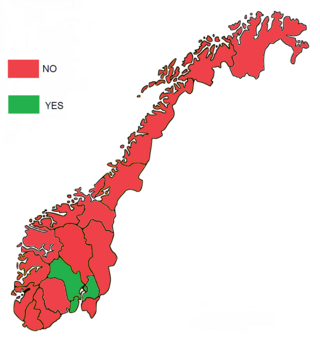
The Norwegian Confederation of Trade Unions is a national trade union center, decidedly the largest and probably the most influential umbrella organization of labour unions in Norway. The 21 national unions affiliated to the LO have almost 1,000,000 members of a Norwegian population of 5 million. The majority of affiliated unions organizes traditional blue collar workers, but the largest affiliate is the Norwegian Union of Municipal and General Employees which makes up more than a third of all members. LO is affiliated to the ITUC and the ETUC.

The Swedish Trade Union Confederation, commonly referred to as LO, is a national trade union centre, an umbrella organisation for fourteen Swedish trade unions that organise mainly "blue-collar" workers. The Confederation, which gathers around 1.5 million employees out of Sweden's 10 million people population, was founded in 1898 by blue-collar unions on the initiative of the 1897 Scandinavian Labour Congress and the Swedish Social Democratic Party, which almost exclusively was made up by trade unions. In 2019 union density of Swedish blue-collar workers was 60%, a decline by seventeen percentage points since 2006 when blue-collar union density was 77%. A strong contributing factor was the considerably raised fees to union unemployment funds in January 2007 made by the new centre-right government.

A referendum on joining the European Community was held in Norway on 25 September 1972. After a long period of heated debate, the "no" side won with 53.5% of the vote. Prime Minister Trygve Bratteli, who had championed a "yes" vote, resigned as a result. This was Norway's second attempt at becoming a member, after having been vetoed by France in January 1963 and again temporarily in 1967, but the first attempt with a referendum on a set of fully negotiated accession terms.
The Electrician and IT Workers' Union is a trade union in Norway.

The Norwegian Union of General Workers is a trade union in Norway. It has a membership of 33,000 and is affiliated with the Norwegian Confederation of Trade Unions (LO).

The Norwegian Union of Iron and Metalworkers was a trade union representing workers in the metal industry, workshops, and shipbuilding in Norway.

LO Stat is one of two bargaining structures within the Norwegian Confederation of Trade Unions (LO). LO Stat is the counterpart in negotiations over state employees' wages and conditions with the government and the employer's organisation, Spekter.

The Norwegian Union of Forestry and Land Workers was a trade union in Norway, organized under the national Norwegian Confederation of Trade Unions.
Trade unions in Norway first emerged with the efforts of Marcus Thrane and the formation of the Drammen Labour Union in 1848 which organised agricultural workers and crofters. However, with Thrane's imprisonment and the suppression of the union in 1855, it was not until 1872 before a union was founded again, by print workers. In 1899 the first national federation, the LO, was founded. During this period interactions with trade unions in Denmark and Sweden played a great influence over the development of trade unions in Norway.
The Norwegian Union of Hide and Leather Workers was a trade union representing workers in the leather industry in Norway.
The Norwegian Central Union of Book Printers was a trade union representing typographers and those in related trades in Norway.
The Norwegian Union of Bookbinders and Cardboard Workers was a trade union representing workers involved in bookbinding and manufacturing packaging in Norway.
The Norwegian Lithographic and Chemographic Union (Norwegian: Norsk Litograf- og Kjemigrafforbund was a trade union representing printers in Norway.
The Norwegian Union of Foundry Workers was a trade union representing workers in metal foundries in Norway.
The Norwegian Union of Stone Industry Workers was a trade union representing stonemasons and quarry workers in Norway.
The Norwegian Bakery and Confectionery Workers' Union was a trade union representing workers in the baking trade in Norway.
The Norwegian Tobacco Workers' Union was a trade union representing workers involved in making cigars, cigarettes and related products in Norway.
The Norwegian Union of Meat Industry Workers was a trade union representing workers in abattoirs and butchers in Norway.
The Norwegian Telecommunication and Data Workers' Union was a trade union representing telecommunication and information technology workers in Norway.

The Norwegian Telecommunication Organisation was a trade union representing technical staff at Televerket.








